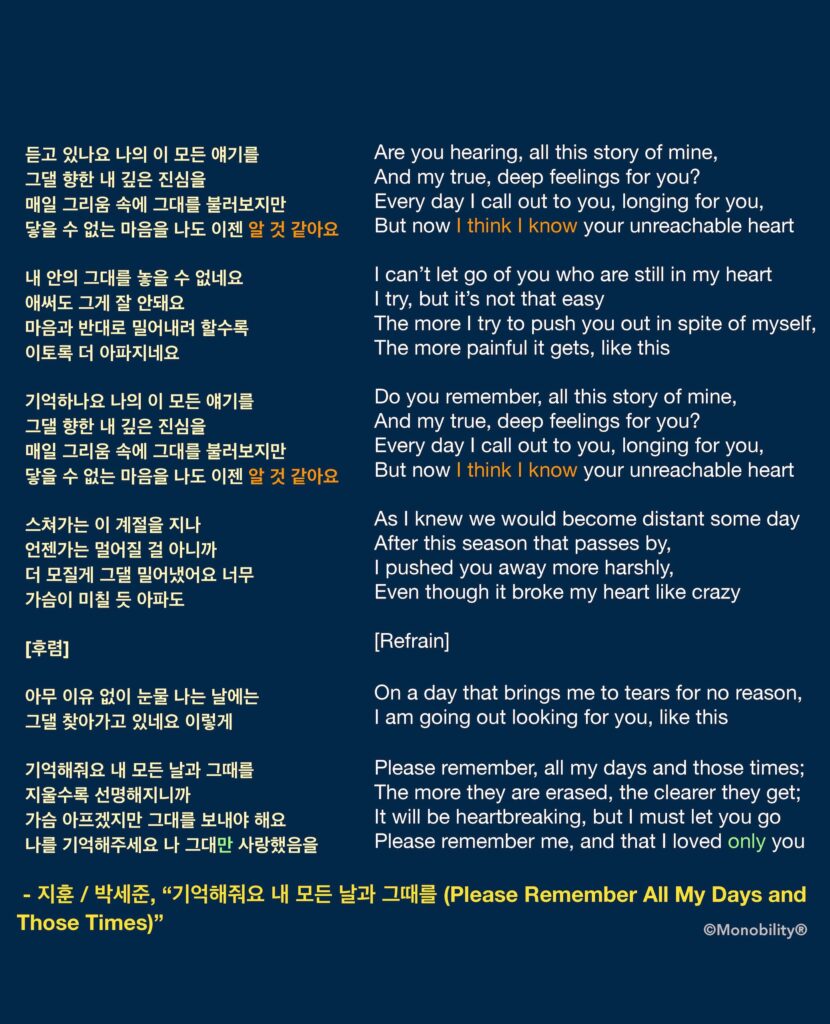- When you are not sure about something but still have to talk about it, you can end your sentence with -것 같아요. In English, it can be translated into “It seems that…; I looks like …; I guess…; or I think…” The ending -것 같아요 should not be said too often in your linguistic life. Depending on where you come from, this type of speech may sound too cautious to show enough self-confidence. But on the other hand, overconfident speech style can be equivalent to telling a lie.
그가 그렇게 얘기한 것 같아요. = It seems that he said so.
그거 이제 알 것 같아요. = I think I understand that now.
이 도시는 참 아름다운 것 같아요. = This city is very beautiful, I guess.
- To say “only” to modify a noun or pronoun, Koreans use the ending -만 right after the noun/pronoun. In everyday conversations, -만 completely replaces the regular subject/object endings 은/는/이/가 or 을/를:
브론토사우루스는 채소만 먹는다. = The Brontosaurus only eats veggies.
나 너만 사랑했어. = I loved only you.
나만 여기 남았어. = Only I have stayed here.
- But -만 can be added after the regular dative endings 에게 or 한테:
이거 너한테만 알려 주는 거야 = I’m only letting YOU know about this, nobody else.


Follow us on Facebook for much more:


